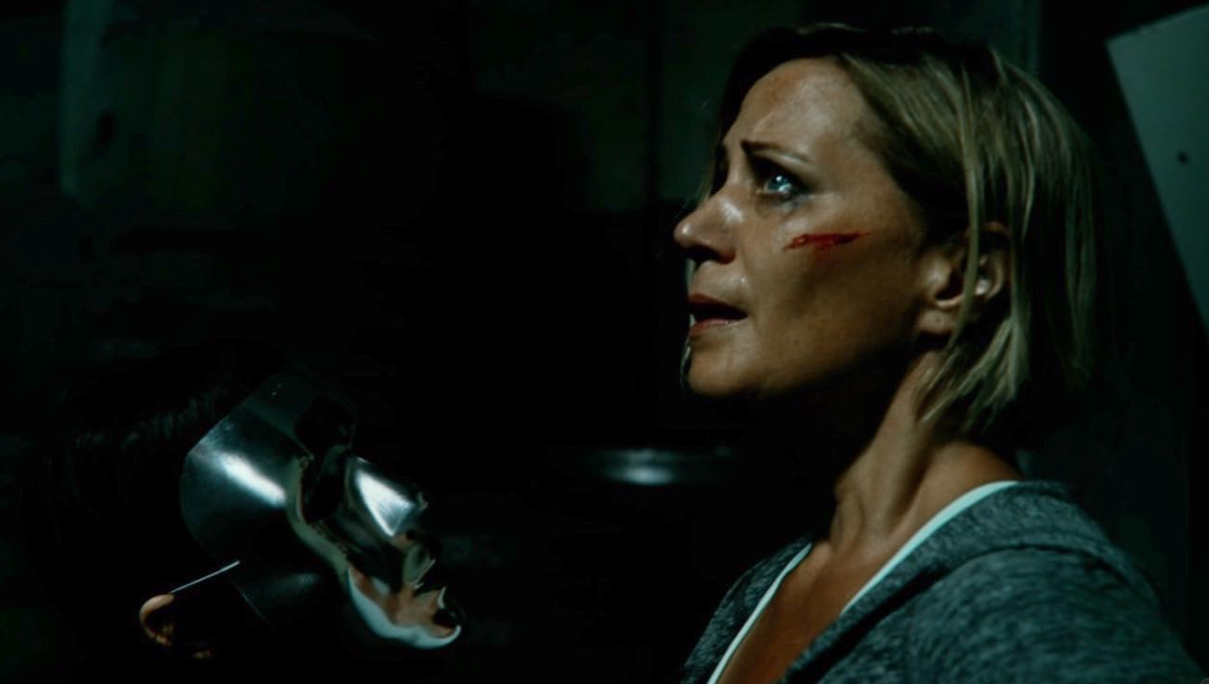“Eternal Code” is a film that attempts to explore a fascinating and thought-provoking subject matter – the concept of eternal life through the transfer of one’s mind into a new body.
However, despite the potential of this premise, the film falls short in various aspects, making it a disappointing and lacklustre cinematic experience, especially in an era where indie films are giving big production studios a run for their money with stellar storytelling.
In this film, two companies have pioneered the technology of achieving eternal life through the transfer of consciousness into new bodies.
Bridget Pellegrini (played by Erika Hoveland) one of the executives who needs to sign off on the merger has her reservations about the research and expresses her discomfort to the rest of the board. As the only hindrance to the merger, a plan is hatched to kidnap and hold her and her family hostage so the deal can go through.
Her daughter, Miranda (played by Angelina Danielle Cama) escapes and enlists the help of homeless veteran Corey (played by Damien Chinappi) to help save her parents and bring down the corporation.
Off the bat, the film’s brilliant plot is marred by not-so-impressive acting. A crucial aspect of any film’s success is the quality of its acting, and unfortunately, “Eternal Code” falters in this department. The performances by the cast are noticeably subpar and amateurish. It becomes evident that the actors struggle with their lines, making their characters come across as unconvincing and unrelatable. The lack of depth and authenticity in the characters’ portrayals hinders the audience’s ability to connect with the story on an emotional level.

In addition to the weak acting, the film features a few attempts at stunts and fight choreography that are executed poorly and come off as gimmicky. These sequences fail to convey the level of intensity or excitement they are intended to generate, ultimately detracting from the overall viewing experience. The lack of professional execution in these action scenes is a notable shortcoming in the film.
Another glaring issue with “Eternal Code” is its excessive runtime. Even with its 1h 45m runtime, the film feels like it drags on for much too long. Particularly since as a viewer, you can almost predict where the story is headed and how it will ultimately conclude. This extended duration serves to dilute the impact of the narrative, making it feel drawn out and tedious. A more concise and tightly edited storyline could have significantly improved the pacing and engagement of the audience.
While the subject matter of the film, the pursuit of eternal life through mind transfer is undeniably intriguing, the screenplay fails to fully explore and exploit its potential. Instead of immersing the audience in a world where such a technological marvel could exist, the film resorts to lengthy, exposition-heavy dialogues that tell rather than show. This approach does a disservice to the imaginative and thought-provoking nature of the concept, leaving viewers wanting more in terms of visual storytelling and world-building.
In the end, “Eternal Code” is a film with a brilliant concept that is ultimately let down by its execution. The extended runtime, sloppy acting, poorly executed action sequences, and reliance on lengthy dialogues hinder its ability to engage and captivate the audience. While the subject matter holds great promise, the film falls short of delivering a compelling narrative.
I would score this film 5/10. It is clear that with better pacing, more skilled performances, and a greater emphasis on visual storytelling, “Eternal Code” could have been a much more satisfying cinematic experience.
As it stands, it might struggle to find appreciation among a wider audience due to its overall poor execution. Nonetheless, it does show its writer and director Harley Wallen does have the potential to impress with a well-executed screenplay.






















